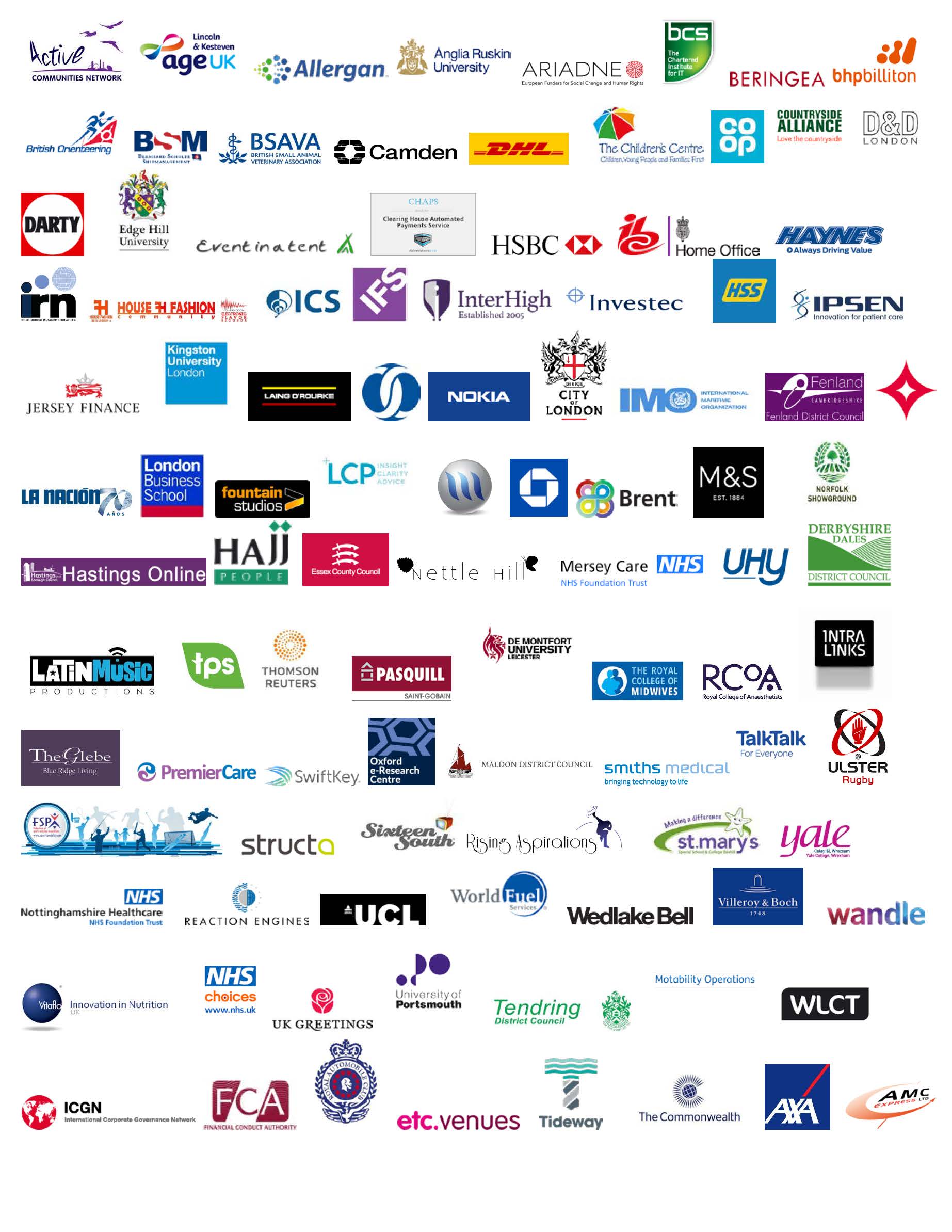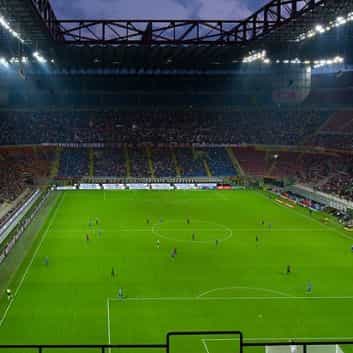Diploma in Sport Event Management via Online Distance Learning
Benefiting from over 30 years’ practical skills training experience, Fitzwilliam Institute’s Online Diploma in Sport Event Management course features:
- Comprehensive modules covering all aspects of sport event management: Event Management Planning, Coordinating Events, Corporate Event Planning, The Proposal Process, Conferences and Seminars, Trade Fairs & Exhibitions, Corporate Meetings, Incentives, Accommodation and Transport, etc. In addition, Public Relations and Setting up a Consultancy Modules are included in this course.
- Interactive course expert support, advice and guidance from leading industry professionals. Always ready to help or answer any questions you might have throughout the course, all of Fitzwilliam Institute’s sport event management course experts are top industry professionals with many years of successful experience. Upon completion of this online diploma in sport event management all of our students are industry-ready.
- Real life sport event management briefs. Fitzwilliam Institute’s Diploma in Sport Event Management empowers participants with practical and specific skills that can be applied in real world situations. You will gain exposure to invaluable sport event management toolkits and prepare a real life brief, enabling you to develop your work portfolio. The course project is aimed at providing you with the confidence and ability to take on and create sport event management strategies and proposals for any organisation.
- Flexible online learning. Fitzwilliam Institute’s Diploma in Sport event management course can be completed in your own time, from the comfort of your own home, to suit your lifestyle. You will have full access to online resources and subject expert support for 6 months. However, you can complete the course in as little as 3 - 4 months, by dedicating 6-8 hours of study per week.
- Sport Event Management Jobs, Networking and Volunteer Opportunities. Benefiting from many years of industry experience, we are extremely well placed within the industry. Employers are always looking for Fitzwilliam Institute’s sport event management students and alumni. Our website features a comprehensive jobs and volunteer opportunities section.
Event Management Planning
Managing Event Planning Schedules; Feasibility Studies; Identifying Event Goals and Listing Objectives; Event Organisational Charts; Duty Rosters; Record Keeping Mechanisms; Recruitment; Reviewing Event Contracts and Agreements; Troubleshooting Event Co-ordination; Creation and Presentation of Proposals to Clients;
Coordinating Events
Developing Creative Elements; Scheduling Entertainment; Site Planning and Inspection; Analysis and Management of the Registration and Admission Process; Providing Adequate Event Security; Planning Event Protocol Requirements; Coordinating Event Speakers with additional Entertainment for maximum effect; Identifying Appropriate Food and Beverage Menus; Event Contingency Planning;
Overview of Sports Events
Define Sports Events; Traditional Sport Events; Niche Sport Events; The Benefits of Sport Event Management; Designing the Sports Event; Developing key objectives of the Sports Event; The Sports Event Industry; Importance of Sports Events; Scale of the Industry; Structures; Participants; Staging Sporting Events Challenges & Opportunities.
Types of Sports Events
The Type of Sport and the Audience - Live or Television; Community / Local Sport Events; Elite level Sport Events; International Sports Events; Public and Private Sports Events; Outdoor versus Indoor Sports Events; One-off Sport Events; On-going Sport Events;
Feasibility and Budgeting for Sports Events
Is the Event Feasible? Physical Resources required and available for the Sports Event; Considering the local community and infrastructure to stage the event; Timing of Sports Events; Competitor Analysis; Budget Categories - Operational; Venue; Promotion; Talent/Athletes; Identify Cost and Revenue Streams;
Planning Sports Events
Objectives of the Event; Scope of Objectives; Interest Groups and Stakeholders; The Event Planning Process; Staged Process; Facilities & Equipment; Catering; Transport of staff; athletes & spectators to and from the Sports Event; Security; The Sports Event Program; Results; Awards & Trophies / Medals; Volunteers;
Stakeholder Analysis in Fundraising & Charity Events
Who are the Stakeholders; What role does each one have in Planning the Event; Identify the Decision Makers in the Organisation; Corporate Sponsors and their Role in the Event;
Volunteer Management
Use of Volunteers; Recruitment of Volunteers; Volunteers in Leadership Positions; Training of Volunteers; Motivating Volunteers;
Event Risk Management
Budgeting; Forecasting Expenditure; Compiling and Understanding Event Contracts; Managing Health and Safety; Event Risk Assessment; Copyright and Trademark Considerations; Event Ethical Practice;
Accident, Incident and Emergency Management
Public Liability and Insurance; Accident and Incident forms; Planning for Hot or Wet and Stormy Weather Conditions; Emergency Management Plan for Fire; Explosion; Dangerous Chemical Release; Medical Emergency; Bomb Threat; Robbery etc.; Emergency Services Management; Fire Safety; Contingency Planning; Evacuation Plans and Training; Crisis Management Strategy; Media Management during a Crisis or Emergency; Management of Complaints;
Sports Event Measurement and Evaluation
The Evaluation Process; Pre-Event Research; Evaluation during the Event; Post-Event evaluation; Types and Ways of Reporting Evaluation of Success of the Sports Event; Key Success Criteria;
Impact & Legacy of Sports Events
Facilities; Sports Development; Political and Cultural Development; Environmental & Economic Development; Long-term impact on Tourism; Land impact & regeneration; Critical Socio-Economic Assessments; Greening Events; Leveraging Community Tourism using Sports Events; Social & Cultural Impacts of Sporting Events; Legacy of Sports Events;
Sustainable Event Management
The Importance of Making your Events Environmentally Friendly; Benefits to your Company; Benefits to your Clients; Benefits to the Environment; Environmental Standards & Eco-friendly Credentials; Schemes you can adhere to; Options Available; Carbon-Neutral Events; Types of Eco-Friendly Events/Suppliers; Eco-friendly Weddings; Eco-friendly Conferences; Eco-friendly Caterers; Eco-friendly Venues and Questions to ask them;
Event Sponsorship
Determining Potential Sponsorship Market based on the Event Type; Time; Location; Assessing Selling Points of the Event; Determining Sponsorship Fulfilment Responsibilities; Research and Set Sponsorship Pricing based on Market Factors and Event Exposure;
Sports Event Sponsorship
History of Sports Sponsorship; Sponsorship Packages & Programmes; The Strategic Sponsorship process; Aligning Organisational goals between the Sponsor and the Sponsee; Ethical and Moral Considerations; When things go wrong - Managing the Relationship with the Sponsor; Event Extensions; Ongoing Sponsorship Deals; Value Adding Sponsorship and Endorsements; Sponsorship Agreements; Negotiating Licensing Agreements;
Marketing the Event
Planning the Event Proposal Strategy; Preparing the Event Proposal; Sending Invitations; Budgeting and Buying Advertising; Publicising the Event; Organising Contests; Merchandising; Packaging and Sales Promotion; Formulating a Public Relations Strategy; Conducting Market Research; Methods of Measuring Marketing Activity;
Marketing Sports Events
Marketing Planning; Event / Organisational Goals & Objectives; Internal & External Analysis; Market Segmentation and Target Audience; Developing the Marketing Strategy and Strategic Marketing Plan; Image; Logo; Brand & Nation - Destination Marketing; Ambush Marketing;
Press Events
Understanding the Objectives of the Press Conference; Defining the Target Audience that Should Attend; Planning Date and Time; Selecting and Booking Venue; Listing Logistics Requirements; Developing a Speaker and Presentation Plan; Reviewing Presentation Content with your Client; Timelines and Media/Press Invitations; Managing Confirmations. Define the Format to a Press Release Structure; Date; Headline; Structure; Wording; Contact Details; Note to Editor; Structuring a Press Release (The Inverted Pyramid model); The Appropriate use of Language for Press Releases;
Public Relations
Sponsorship; Internal PR functions; Corporate Image; Press and Broadcast Media Relations; Client Relationships; Internal PR; Commissioning and Briefing Photographers; Supplying Material to the Press/Getting Material onto TV and Radio; Organising Seminars; Exhibitions and Conferences; Audio/Visual Aids; Writing Skills (Press Releases; Writing Feature Articles for the Press; In-house Journals and Newsletters); Crisis Management; Corporate Advertising; Brochures and Printing;
ONLINE PUBLIC RELATIONS
The Social Media Landscape
Blogs; Microblogs; Chatrooms; Delicious; Email; Flickr; Twitter; Instant messaging; Message Boards; Mobile Internet ; New Media Releases; Online Conferencing; Online Surveys; Pay per click; Podcasts; RSS; Search Engines; SEO; Social Networking Service Sites; Video Sharing; Virtual worlds; VoIP; Wiki and Widgets;
The Internet as a Media
Commercial Implications of the Internet; Social Interaction with the Internet; Web 2.0 and its Implications; Internet Convergence; the Network Effect; Internet Information Exchange; Internet Audience Size and Exposure; Internet Culture and Communication; Transparency and the Internet;
Public Relations and Search Engine Optimisation
PR tactics; Optimising your Campaign; the Google Factor; SEO Tactics; SEO Guidelines; Factors influencing SEO; on-page and off-page SEO; CMS; Link Building. Link Building guidelines;
Social Media and PR Strategy
Local versus Global Communication; Landscaping Platforms; Channels and context; Online PR Organisational Analysis and Segmentation; Developing Online PR Strategies; Online PR Tactics and SEO considerations; Online PR Planning; Managing Online PR Risk and Opportunities;
Online Influences on Present PR Practices
Internet influence on News; Internet Journalists; Economics of Online News Production; Internet Critics and other influences; the PR Practitioner as an Online Publisher; Ethical Internet PR; Truthfulness and Duty of Care; Online Ethics; Debate; Guidelines and Best Practice. Monitoring and Evaluation of Social Media Discourse; Trends and Value; Policy Influences; corporate speak; Implications of Social Media for Corporate Social Responsibility;
Social Network Marketing
Introduction to Social Media and Social Networking; How Social Media is transforming the way we do Business; Facebook; Twitter; LinkedIn, Instagram, Snapchat, YouTube;
Setting Up & Marketing Your Own Consultancy
The Business Plan; Legalities; Setting Up; the Marketing Strategy; Knowing Your Competitors; Promotional Tools;
Presentation Skills
Preparation and Research; Speech Content; Subject Matter and Objectives; Speech Delivery and Variety; Body Language; Eye Contact; etc.; Presentation Aids; Management of Locations and Audiences; Presentation Structure;
I am nearing the completion of your Event Management & PR course. I actually found it via LinkedIn when I saw a number of people working in the sports industry in event management roles had it listed as a qualification. I have found your course hugely beneficial and putting numerous elements from it in to practice I believe is in part responsible for the massive success of our event. Our event profit went from €4000 last year to over €10,000 this year. The added attention to detail that I was able to put in to practice from the various course modules was a huge help. As I have three young children the best part for me was being able to complete the course in my own time. Yes, you need to be disciplined and put in the work but the flexibility that this course allows you was really great. I also found the assignment review feedback really helpful and detailed. I would most definitely recommend it as a course for any aspiring Event Managers! - Clodagh Fleming, Rith na Lochanna 5k organiser
Clodagh Fleming
On successful completion of this course you will receive a Professional Diploma qualification that is certified and awarded by the ICM (Institute of Commercial Management).
The Institute of Commercial Management was founded in 1979 and is one of the leading Professional Examination and Certification Bodies in the world today. Fitzwilliam Institute have developed and provided practical skills training courses in liaison with the Institute of Commercial Management qualifications and certifications framework for over 25 years. The Institute of Commercial Management certifications and continual professional development training awards are recognised by leading industries, bodies and professions.
next start date: 4th April 2025
Duration: You will have full access to online resources and subject expert support for one calendar year. However, you can complete the course in as little as 4 - 6 months, by dedicating 6-8 hours of study per week.
Course Fees: 795.00 GPB
To secure your place on the course the full fee is required. All fees must be paid in full before the course begins. Please note, the full course fees are inclusive of all course materials and certification costs.
Enrolment intake is strictly limited on this course. Early application is advised. Places are allocated on a first come first served basis.
Fitzwilliam Institute closes on Bank Holidays and for a number of days at Christmas and New Year. Fitzwilliam Institute reserves the right to postpone, cancel or alter courses without notice or to change any of the details in this brochure. Fees are not refundable unless the course is cancelled by Fitzwilliam Institute. Distance Learning courses are provided by Fitzwilliam Institute BGLS Ltd.
Year on year, we have the pleasure of training students from top UK and international companies. See where our most recent students come from and find out what they have to say.

